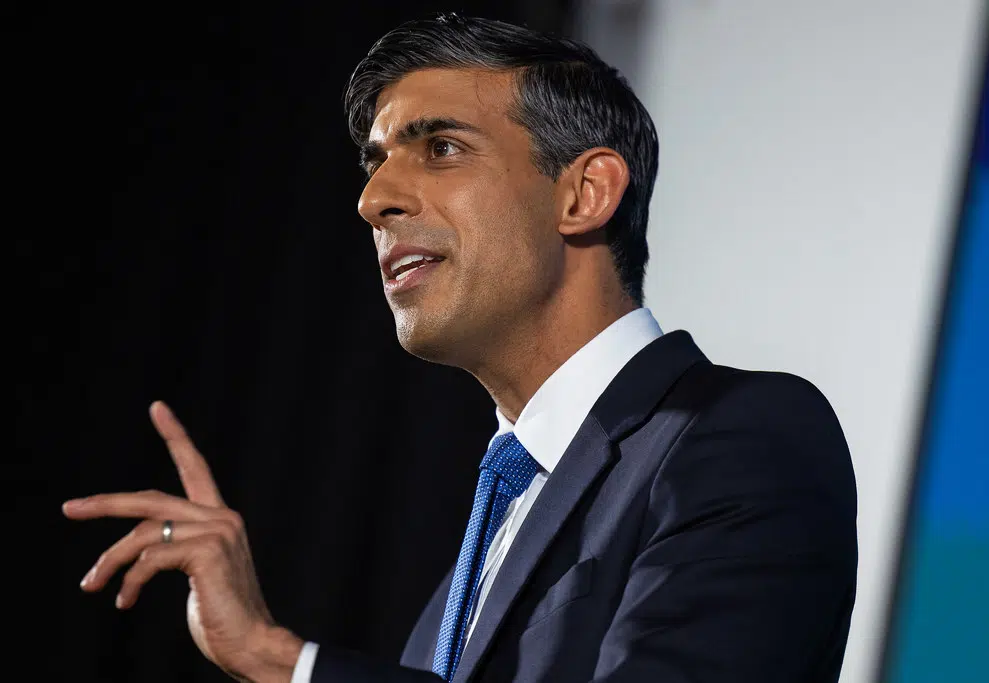Fossil Fuel Linked Donors Gift Half a Million to Conservative Party
Original article by Sam Bright republished from DeSmog.
The CEOs of jet fuel suppliers, gas turbine makers, oil and gas companies are among those who made large donations in the last quarter of 2022.

The Conservative Party has received more than £632,000 in new donations from individuals and firms tied to polluting industries, DeSmog can reveal.
New Electoral Commission records released today show that the bulk of the fossil-fuel linked funds came from Christopher Harborne, who donated £500,000 in the final quarter of 2022 – the joint-largest donation registered by the party during this period.
Further donations were made by a gas turbine manufacturer, a North Sea oil investor, a petrochemical engineering firm, and a peer with shares in major oil and gas companies.
The revelation comes at an important moment for UK climate policy. Sunak’s government is due to release an update to its net zero strategy next month after a High Court judge ruled it lacked sufficient detail.
The government recently opened up a new round of North Sea oil and gas licences for oil and gas exploration, at a time when the UN has warned that only drastic, immediate cuts to carbon emissions can avert a climate catastrophe.
Caroline Lucas, Green Party MP for Brighton Pavilion, said donations from polluting industries represented a “dangerous conflict of interest”.
Fossil Fuel Ties
Harborne is the owner of AML Global, an aviation fuel supplier operating in 1,200 locations worldwide with a distribution network that includes “main and regional oil companies”, according to its website. Harborne is also the CEO of Sheriff Global Group, which trades in private jets.
Before the pandemic, aviation emissions accounted for eight percent of the UK’s annual greenhouse gas emissions, according to the government’s Climate Change Committee, yet the government granted nearly £250 million in “free pollution permits” to the industry in 2021.
In the past, Harborne has provided gifts to Conservative MP Steve Baker, who co-founded an anti-green group of back benchers – the Net Zero Scrutiny Group – and who has said that a considerable amount of climate science is “actually still contestable”.
Harborne has also donated some £6.5 million to the Brexit Party – now Reform UK – whose co-founder Nigel Farage has called for a referendum on the government’s net zero targets and has labelled the focus on carbon emissions “alarmism”. Harborne has rarely spoken about the climate crisis, so the details of his personal views are unknown.
As revealed by DeSmog, Harborne also donated £515,000 to the Conservatives in the second quarter of 2022, when the party accepted a total of £651,000 from the aviation industry.
These donations landed in the same period as the government’s “Jet Zero Strategy”, published in July. The policy – which aims to cut UK aviation emissions to net-zero by 2050, allow travellers to fly “guilt-free” and supports further aviation sector growth – has been dismissed by environmental groups as “pure greenwash”.
Harborne and AML Global have been approached for comment.
Other Donors
The new Electoral Commission records show that the Conservatives received a further £15,000 in the final quarter of 2022 from Centrax Industries – a firm that specialises in manufacturing gas turbines. Centrax has now given more than £300,000 to the Conservatives since 2010.
DeSmog previously revealed that companies and individuals involved in North Sea oil and gas – including Centrax – donated a total of £419,900 to the Conservatives ahead of and during the government’s review into the future of the sector from July 2020 to March 2021.
Another Conservative donor in the final quarter of 2022 was Nova Venture Holdings, which donated £52,260. The company is wholly owned by Jacques Tohme, who describes himself as an “energy investor” on LinkedIn and lists his current role as co-founder and director of Tailwind Energy, an oil and gas company.
According to its website,Tailwind focuses on “maximis[ing] value in UK continental shelf (UKCS) opportunities”, an area which includes the North Sea. Serica Energy reportedly has an agreement in place to buy Tailwind, which is expected to complete in March. The acquisition will make Serica one of the 10 largest North Sea oil and gas producers.
A further £10,000 was given to the Conservatives by Alan Lusty – the CEO of Adi Group – adding to the £17,000 that he has given to the party since 2021. According to its website, Adi Group is a “leading supplier of engineering services to the petrochemical industry”. These services “add significant value to petrochemical engineering companies”, Adi says, though the firm claims “to work towards delivering a low-carbon economy” through its products. Adi also provides engineering services to the aerospace and automotive industries.
Finally, the Conservative Party received £50,000 from one of its peers – Lord John Nash – who also donated £5,000 to the local Wantage constituency party. According to his register of interests, Lord Nash holds shares in Royal Dutch Shell, the second largest investor-owned oil and gas company in the world by revenue, and BHP, the Australian-based mining, oil and gas firm.
Lord Nash, who has run several private equity funds, has donated more than £560,000 to the party since 2018.
The £632,260 accumulated by the Tories from fossil fuel interests and high polluters represents more than 13 percent of the party’s £4.8 million income during the final quarter of 2022.
Rishi Sunak himself received £141,000 from energy interests during his Conservative leadership campaign in the summer of 2022.
Jacques Tohme, Tailwind Energy, Centrax, Adi Group, Lord Nash and the Conservative Party have been approached for comment.
Additional research by Clare Carlile.
Original article by Sam Bright republished from DeSmog.